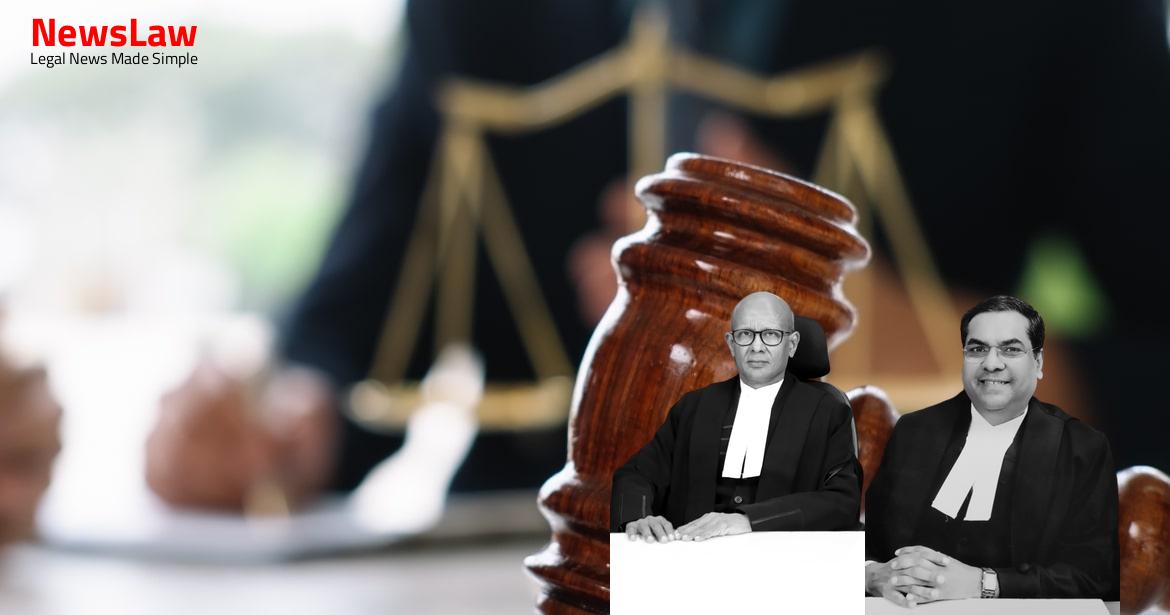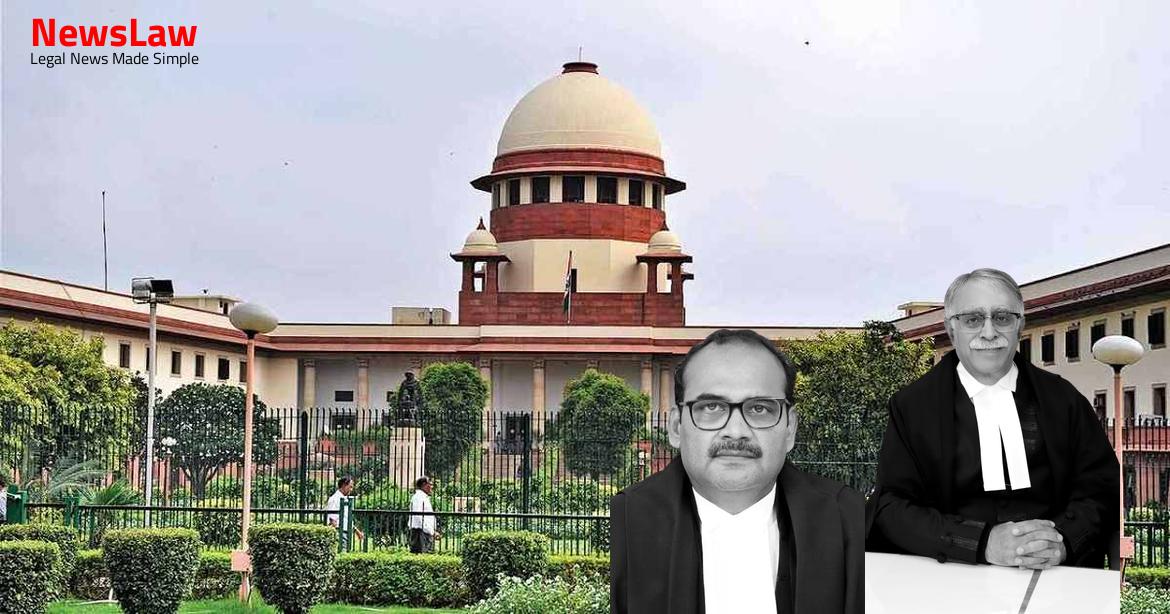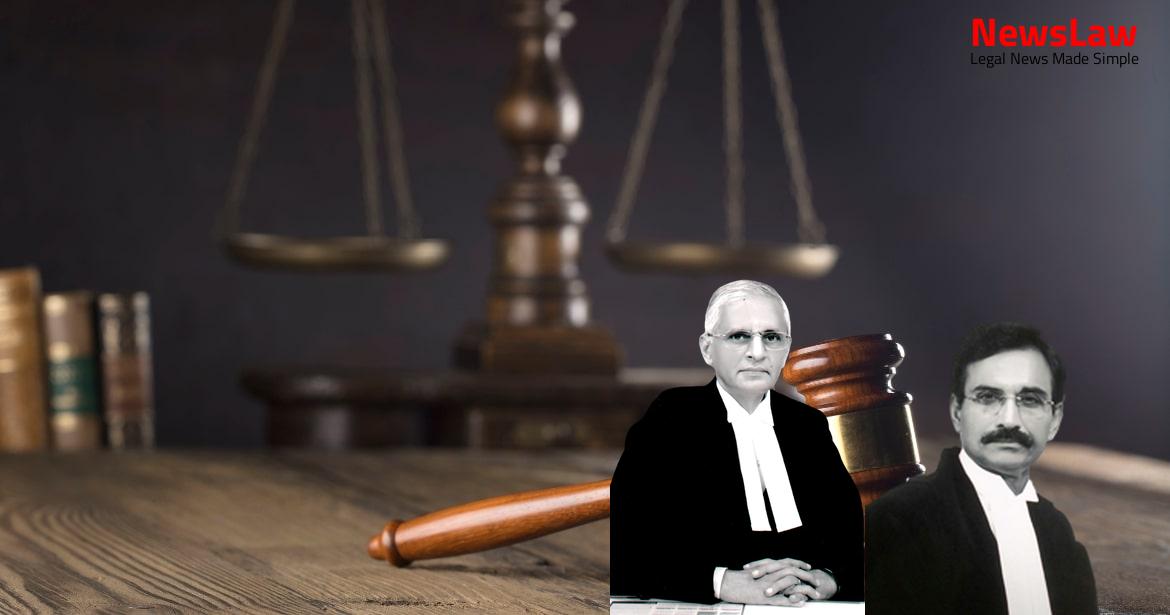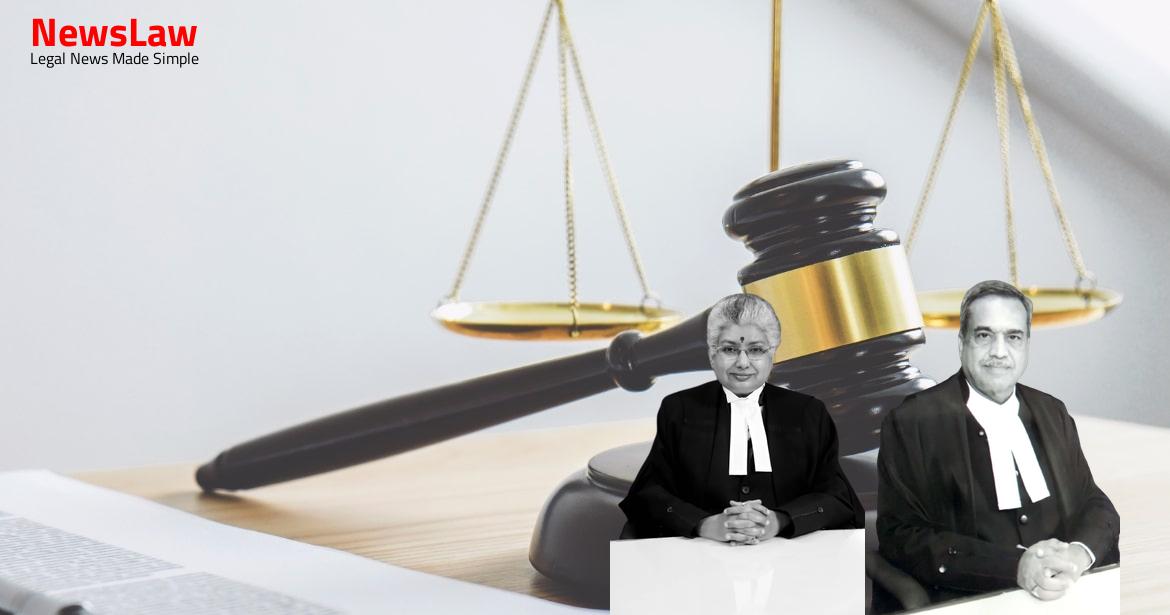In a significant ruling by the Supreme Court of India, the judgment of the High Court regarding the Land Dispute Case has been overturned. This decision brings clarity and justice to the case, impacting the lives of those involved. The Court’s verdict sets a precedent for future legal proceedings in similar matters, emphasizing the importance of fair trials and unbiased judgments in the Indian legal system.
Facts
- The witnesses present at the bus stand did not intervene to rescue the deceased due to fear of the accused assaulting them.
- M. Ramaiah (PW-1) opened his shop at Hullahalli Gate between 6:00 and 7:00 AM every day.
- Contradictions were noted regarding who took the deceased to the hospital.
- The police visited the scene and recorded the Spot Mahazar in the presence of witnesses.
- Witnesses were close family members or relatives of the deceased and had blood-stained clothes while transporting the deceased to the hospital.
- The alleged motive for the attack was a dispute over a land sale transaction.
- M. Ramaiah (PW-1) lodged a written complaint at the Police Station, leading to the registration of FIR No 26 of 2005.
- The High Court reversed the initial judgment of acquittal, considering discrepancies and contradictions in witness statements.
- The witness R. Shashikumar (PW-11) claimed it was his autorickshaw that the accused persons used during the incident.
Also Read: Gabare vs. State of Maharashtra: Acquittal of Accused in Landmark High Court Decision
Analysis
- Contradictions in the testimonies of eyewitnesses regarding the recording of Spot Mahazar by the police diluted their credibility.
- No independent witness was found, only related witnesses were projected as eyewitnesses by the prosecution.
- No effort was made to seize the clothes of the eyewitnesses for forensic examination.
- If two reasonable conclusions are possible based on evidence, the appellate court should not disturb the trial court’s acquittal.
- Witness credibility was questioned due to delay in surfacing and contradictions in evidence.
- No explanation given on how the witness was located by the police or his role in the incident.
- High Court failed to convincingly establish the impossibility for the Trial Court to reject witness testimony.
- Eyewitnesses provided different timelines, casting suspicion on their presence at the crime scene.
- Statements of eyewitnesses were recorded under Section 161 CrPC a month after the incident, raising doubts about accuracy.
- High Court, upon reversing the Trial Court’s judgment, had the burden to provide clear findings on each charge, especially criminal conspiracy under Section 120B IPC.
- An appellate court has the full power to review, reappreciate, and reconsider the evidence on which the order of acquittal is based.
- Phrases emphasizing the reluctance to interfere with acquittals should not limit the court’s authority to review evidence and reach its own conclusion.
- In case of acquittal, there are two presumptions in favor of the accused: the presumption of innocence and the reinforcement of this presumption through the trial court’s decision.
- Expressions like ‘substantial and compelling reasons’ or ‘good and sufficient grounds’ should not restrict the extensive powers of an appellate court in appeals against acquittal.
- The High Court’s brusque approach to the appeal resulted in the conviction of Appellant Nos. 1 and 2.
- This decision reversed the Trial Court’s well-considered judgment of acquittal, where Appellant Nos. 1 and 2 were given the benefit of doubt.
- This aspect was seen as the quintessence of the jurisprudential aspect of criminal justice.
- The reversal of the Trial Court’s judgment was deemed unsustainable given the circumstances.
- The High Court’s decision did not align with the principles of justice and benefiting the accused in case of doubt.
Also Read: P.J. Antony and Cheriyan Kuruvila vs. State Forest Department
Decision
- Bail bonds and sureties furnished by Appellant Nos. 1 and 2 are discharged.
- Judgment dated 29.03.2012 by the High Court of Karnataka in Criminal Appeal No. 1544 of 2006 is set aside.
- Conviction of Appellant Nos. 1 and 2 on all charges is set aside.
- The appeal is allowed.
Also Read: Supreme Court Judgement: Mrugendra Indravadan Mehta And Ors. vs. Ahmedabad Municipal Corporation
Case Title: RAMESH Vs. THE STATE OF KARNATAKA HOME DEPARTMENT SECRETARY (2024 INSC 701)
Case Number: Crl.A. No.-001467-001467 – 2012



